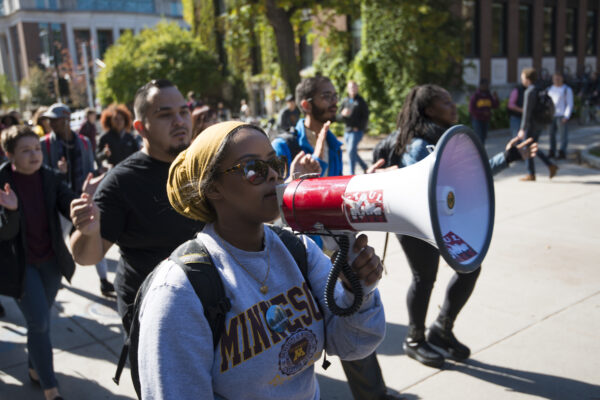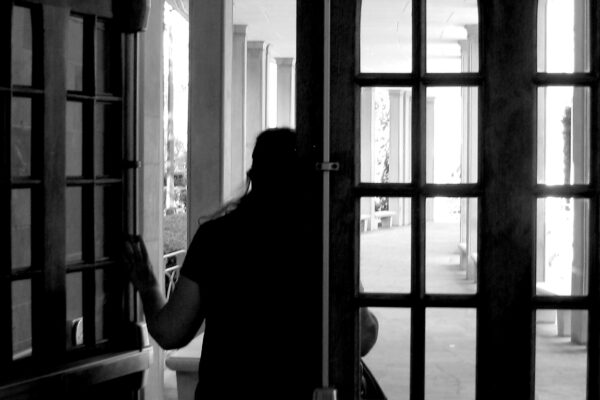By Traevena Byrd
This post is part of ACE’s work on free speech and campus inclusion made possible through generous support from the John S. and James L. Knight Foundation.
Events of the past several years have shown that conflicts between the values of free expression and inclusion at colleges and universities play out differently on each campus. Societal issues evolve, the nature of controversies change in response to those issues, and what triggers those controversies will vary. In addition, each institution has its own history and culture and an ever-changing student body.
No universally applicable checklist can ensure that every campus will be protected from these disruptions, and lessons learned in the aftermath of one institution’s crisis don’t always perfectly apply to another institution. However, observing the complex manifestations of these conflicts, we note that there are some common challenges that inform our approach to preparing for and resolving conflicts.
One central takeaway is the overarching need to engage a wide range of administrators on these issues, on an ongoing basis—before, during, and after any campus disruption—to achieve the best results.

Administrators in student affairs, academic affairs, communications, safety, risk management, facilities, and of course, diversity, equity, and inclusion, are on the front lines and in the trenches, dealing directly with controversy, protests, and other types of campus disruptions. These same individuals must address the tensions that arise when their institutions strive to create inclusive and welcoming communities, while also providing space for expression that makes some members of our communities feel excluded and unwelcome, or worse.
The resolution of these concerns often requires an understanding of a complex legal landscape, which includes academic freedom, state and federal law (specifically, Title VI of the Civil Rights Act and Title IX of the Higher Education Act), and—in the case of public institutions—the First Amendment. Campus lawyers are important partners in the navigation of this tricky terrain, carrying the flashlight so that our colleagues can see the landmines and pitfalls and helping them figure out how to get around the hazards.
Whatever legal landscape your institution faces, the following guiding principles can help you plan in advance for potential conflicts on your campus.
Before a potentially disruptive event is anticipated, work with your legal counsel to audit policies and procedures.
It is important to review policies that govern how events are planned and executed, such as those that address facilities use, third-party rentals, demonstrations and rallies, and any other policy that imposes time, place, and manner restrictions on expression. Remember also to look at your institution’s policies on tabling, chalking, or posting flyers. Consider various scenarios where the application of your policies could have unintended (and undesired) consequences.
Institutional policies related to student discipline and trespassing should also be reviewed to ensure that they are appropriately viewpoint-neutral, while also prohibiting conduct that constitutes illegal harassment and discrimination. Occasionally, in an effort to respond sympathetically to victims of hate speech, administrators will unintentionally apply procedures in an unequal manner, exposing the institution to liability. Campus counsel can assist with the development of a consistent framework for evaluating complaints that will help colleagues process them with the requisite compassion, consistency, and fairness.
Identify target-rich spaces on and near your campus.
Take a close look at who your buildings are named for, and make sure you know the associated history. Check statues and other iconography throughout your campus and be prepared for receiving and processing concerns about them. What policies do you have in place for soliciting, researching, vetting, and recommending building names? Have you done a practice tabletop exercise with senior leaders and your campus safety department? How are student affairs staff members building relationships with students and then making sure that they can activate those relationships in times of crisis?
Your institution’s counsel will be a helpful contributor to these conversations and can facilitate resolutions when different departments have competing interests.
When a potentially disruptive event is planned, take your planning to the next level.
When an event such as a controversial speaker or a rally is announced for a specific date, this triggers the need to activate another level of preparation. College and university leaders are wise to work with counsel to overestimate the potential negative outcomes related to these events and to overcommunicate with one another in preparation.
Time and again, we have observed that what starts out like a small ripple in a pond can turn into a destructive tsunami without warning. Your legal counsel can support your external communications efforts by helping to ensure that public statements are a clear articulation of institutional values while simultaneously presenting an explanation for why the college or university’s commitment to free expression compels it to permit speech that it might find detestable.
Counsel also can help student affairs staff in their efforts to educate students about applying risk management principles to their event planning. Students should be discussing event size, crowd management, and whether ticketing the event would be appropriate. They also should be considering venue layout and making sure that controversial speakers and counter protesters have separate entrances. They need to think ahead and have instructions for moderators about how to handle disruptions.
Some security questions can only be addressed by campus administrators.
How does your institution make viewpoint-neutral decisions about the level of security that will be required, and how will you pay for it? How can you designate space in a manner that helps you better manage conflict? Does your campus security conduct target hardening by banning glass and removing trash cans and bike racks? Have you established an emergency operations and command center for representatives from campus safety, student affairs, communications, and others who need to be on the ground? Have you thought about the logistics of communicating quickly and accurately with the college or university’s leadership team, including your legal counsel, in case you need to activate them? Have you made advance decisions regarding police discretion and use of force, and to what extent different aspects of the student conduct code will be enforced? Do you know what is contained in the mutual aid MOUs between your institution and local law enforcement agencies from nearby or adjacent jurisdictions?
The answers to some questions have legal implications, and it is important for administrators, staff, and institutional leaders to think through these issues so policies can be activated effectively when a crisis is imminent.
In the aftermath, campus counsel can help you evaluate the situation and your institution’s response.
After a campus has endured a disruptive event, it can be useful to invite campus counsel to join other staff members who are meeting with students to address ongoing concerns, particularly when they involve issues with legal dimensions.
Counsel can serve as a resource for translating how law and policy are applied to certain situations. When emotions are high, students who are searching for answers that make sense sometimes respect and appreciate the legal perspective. It is important to note that when attorneys are involved directly with students, we do so only when invited by our colleagues and with the limited purpose of supporting their efforts to educate students.
In the unpredictable landscape of higher education, free expression, diversity, and inclusion, preparation is paramount. Ideally, as college and university administrators improve our ability to engage proactively, thoughtfully, and collaboratively, our concerns about these competing tensions will no longer put us into a state of collective panic. Instead, we will see them as they really are—opportunities to further educate our students and advance the academic missions of our institutions.
If you have any questions or comments about this blog post, please contact us.


